Soundtracking Dorkdom: Bathory
Cattle die, kindred die
Every man is mortal:
But I know one thing that never dies
The glory of the great dead
You know what’s kickass? Vikings. Not necessarily Vikings – I already talked about that – but the whole concept. The historical record. The cultural aesthetic. The mythology. All of it. Vikings kicked the asses of a decent portion of the world for several hundred years, and left an indelible mark on our culture. It stands to reason that, if you’re a young malcontent in modern-day Frozen-Ass Scandinavia, you might want to capture some of that glorious heritage. And since it’s impractical to get in a boat and hit people with an axe, the next best step is rocking the fuck out.
Such, I can only imagine, was the thought process of young Tomas “Quorthon” Forsberg when he started a band in 1983. I can’t really imagine, if only because it’s so cosmically unlikely, that he knew what he was getting into – basically creating two genres of heavy metal, recording one of the best metal albums of all time, and leaving his indelible mark on the whole subculture – but it’s possible. Maybe he drank from the well of Mimir and gained ancient wisdom, and knew exactly what he was starting and how it would end, when he first formed Bathory.
A brief history lesson – Bathory was basically just Quorthon, with a couple other guys early on. They started out playing at top speed and shrieking about Satan, and thus codified “black metal.” Then came a few albums that are best described as Skyrim, the Band, and “Viking metal” was born. Then Quorthon dicked around for a bit, released a couple clunkers, went back to Viking metal almost as good as ever, and then tragically died of heart failure in 2004. He left behind a grieving family, a legion of cultish fans, and a body of work that few musicians can equal. And you, my friends, need to check that shit out.
The Wisdom of Odin: I don’t say this lightly. Hammerheart is one of the greatest heavy metal albums ever recorded. It’s Bathory’s fifth album, signifying Quorthon’s full plunge into the idea of “Viking metal,” and it is a complete fucking triumph right from the gentle opening strains of epic bruiser “Shores In Flames.” The whole “Skyrim, the Band” thing was kind of a cheap tagline, but honestly, there’s a certain symmetry. That game succeeded, more than anything else, in creating an immersive and powerful atmosphere, and that is exactly what Hammerheart does for a listener. The guitar riffs rely more on sheer tonnage than dicing speed, and there’s something to be said for the relatively relaxed tempo on most of the songs; it lends the guitar work weight, the tidal inevitability of an epic poem. The grinding “Father To Son” is probably the fastest song on there, beating a rower’s tattoo, but most of the songs are content to pace along and let you catch up.
Quorthon’s vocals, well – I will level with you. He is hoarse, his meter slips occasionally, his key is limited. This might be a straight-up entry barrier, and if so, I bid you farewell with a heavy heart; we shall not meet in “Valhalla.” But if you can get past the technical limitations, well, god damn, there is power in that voice, and glory, and sorrow. Young Mr. Forsberg can honestly make you believe that he is an 11th-century Norseman, mourning the end of an age, not comforted by this magical thunder-lute he has somehow gotten his hairy hands on. Witness, for instance, the interlude “Song To Hail Up High,” which legitimately makes me weepy more often than not. But the potential of Quorthon’s vocal style is most present in the album’s closer, “One Rode To Asa Bay,” a magnificent ten-minute paean to the end of Norse paganism that makes poetry of its broken English. Hell, Quorthon even paid for a music video out of pocket. Horses! Monks! Longships! And the song deserved it, because it is fucking amazing. The whole album’s amazing.
The Might of Thor: Bathory’s early form reached its apex with Blood, Fire Death, the predecessor to Hammerheart and the album where Satan began to give way to Odin. The first three albums are raw, heavily distorted, and vicious, pummeling you with blast-beat drumming and demonic snarls; I like ‘em, but I would be hard-pressed to define them as accessible, which is, of course, the point. Blood keeps some of that, but really begins to delve into atmospheric pacing. Album opener “A Fine Day To Die” is a great example, marrying vicious black metal vocals with a more measured riff approach. The greater part of the album maintains a merciless thrasher’s pace (see “The Golden Walls of Heaven”), but with a little more polish than previous efforts. And then, of course, there’s songs like the title track, closing the album in extended anthemic style with a galloping breakdown and a good old battle-cry of a chorus. It’s not Hammerheart yet, but you can hear it getting there. If you’re not sure about this whole “metal where the dude’s mostly just snarling” thing, this is a good album to cut your teeth on.
The Cunning of Loki: in the 90s, Quorthon took a brief, misguided trip into dark territory, culminating with the dreadful Octagon, best described as a Slayer album Slayer left on the cutting-room floor. Thankfully, he clawed his way back up to triumph, that triumph being summarized by the back-to-back Nordland albums. The title track (opening Nordland I) has one of the most fist-pumpingly glorious main riffs that metal has ever heard, starting about a minute in. The Nordlands are a return to form, more polished than Hammerheart and its immediate followups, and either make a solid starting point if you’re not sure if “metal” is your thing but you are definitely intrigued by “Viking.” Of the two, I is the better, with the title track backed up by songs as diverse as the mostly-acoustic Nordic love song(!) “Ring of Gold” and the anvil-ringing anthem “Mother Earth Father Thunder,” one of the heaviest fucking things ever recorded. Nordland II has its own highlights, like the awkwardly-titled rocker “Death And Resurrection of a Northern Son” and dynamic “Sea Wolf,” but it works best as a companion piece to the first album.
Sadly,II was also the last thing Bathory recorded before Quorthon’s death. He was a paltry 38, the kind of age where the people he exalted might’ve been thinking themselves lucky to not be on the business end of a spear yet, but far too young for a guy who fought his battles with a six-string in a studio. But what he did in those 38 years, well, it’s hard to ask for more than to pursue your passion with results like this. At his best, he made Bathory’s music a singular experience – a battle-cry from a bloody throat, a beaten man standing on the shore and screaming at the sea to come and have another go, because he’s not done yet.

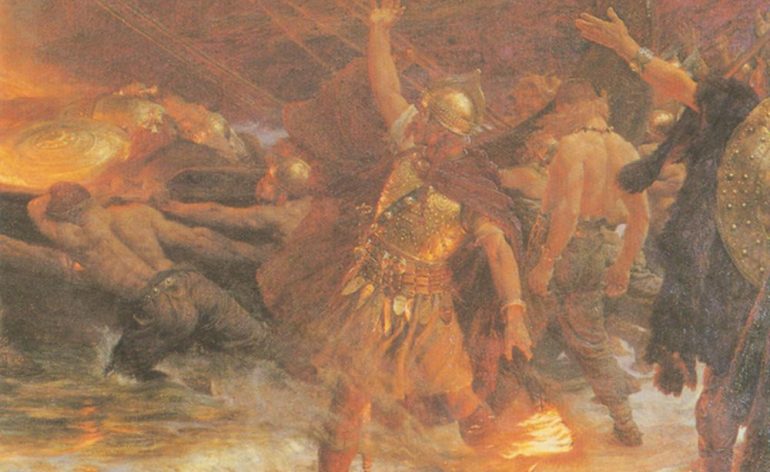
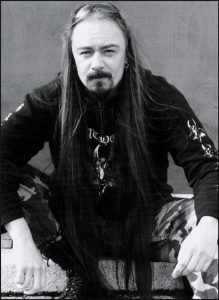
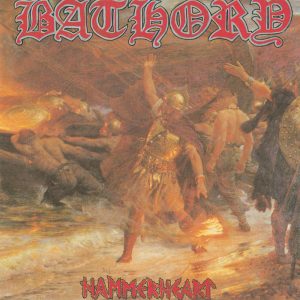
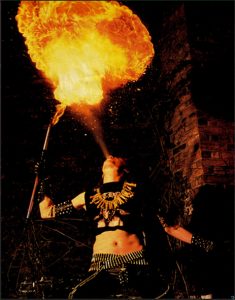


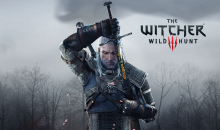

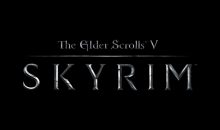
I have never read such an entertaining history of Viking rock. Your post brought a smile to my face on an otherwise depressing day. Rock on, my friend.